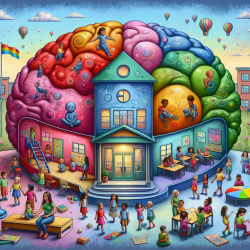In the realm of online therapy, understanding the subtleties of nonverbal communication can significantly enhance the therapeutic relationship. A recent study titled Interpretation and Working through Contemptuous Facial Micro-Expressions Benefits the Patient-Therapist Relationship sheds light on the impact of micro-expressions on psychotherapeutic interactions. This blog explores the key findings of the study and offers practical tips for practitioners to implement these insights into their practice.
Understanding Micro-Expressions
Micro-expressions are brief, involuntary facial expressions that reveal genuine emotions. They last only a fraction of a second but can provide deep insights into a person's true feelings. According to Paul Ekman, who pioneered this field, there are seven basic emotions: happiness, surprise, anger, sadness, fear, disgust, and contempt.
Key Findings from the Study
The study analyzed 22 video recordings of psychiatric interviews, focusing on the occurrence of facial micro-expressions and their impact on the patient-therapist relationship. Here are some key findings:
- Interpretative and confrontative interventions often trigger contemptuous micro-expressions in both therapists and patients.
- Surprisingly, these displays of contempt were associated with higher scores on the Working Alliance Inventory (WAI), a measure of the therapeutic relationship's quality.
- Supportive interventions were more likely to elicit expressions of joy and disgust.
Practical Tips for Practitioners
Given these findings, here are some practical tips for therapists to enhance their practice:
- Recognize and Interpret Micro-Expressions: Training in recognizing micro-expressions can help therapists understand their patients' true emotions better.
- Don't Shy Away from Confrontation: While it may seem counterintuitive, confrontative interventions that elicit contempt can actually strengthen the therapeutic relationship.
- Balance Supportive and Interpretative Techniques: While supportive techniques are essential, integrating interpretative interventions can lead to a more robust working alliance.
Encouraging Further Research
While this study provides valuable insights, it also opens the door for further research. Therapists are encouraged to explore the role of micro-expressions in their practice and consider participating in studies that aim to deepen our understanding of these complex interactions.
To read the original research paper, please follow this link: Interpretation and Working through Contemptuous Facial Micro-Expressions Benefits the Patient-Therapist Relationship.










